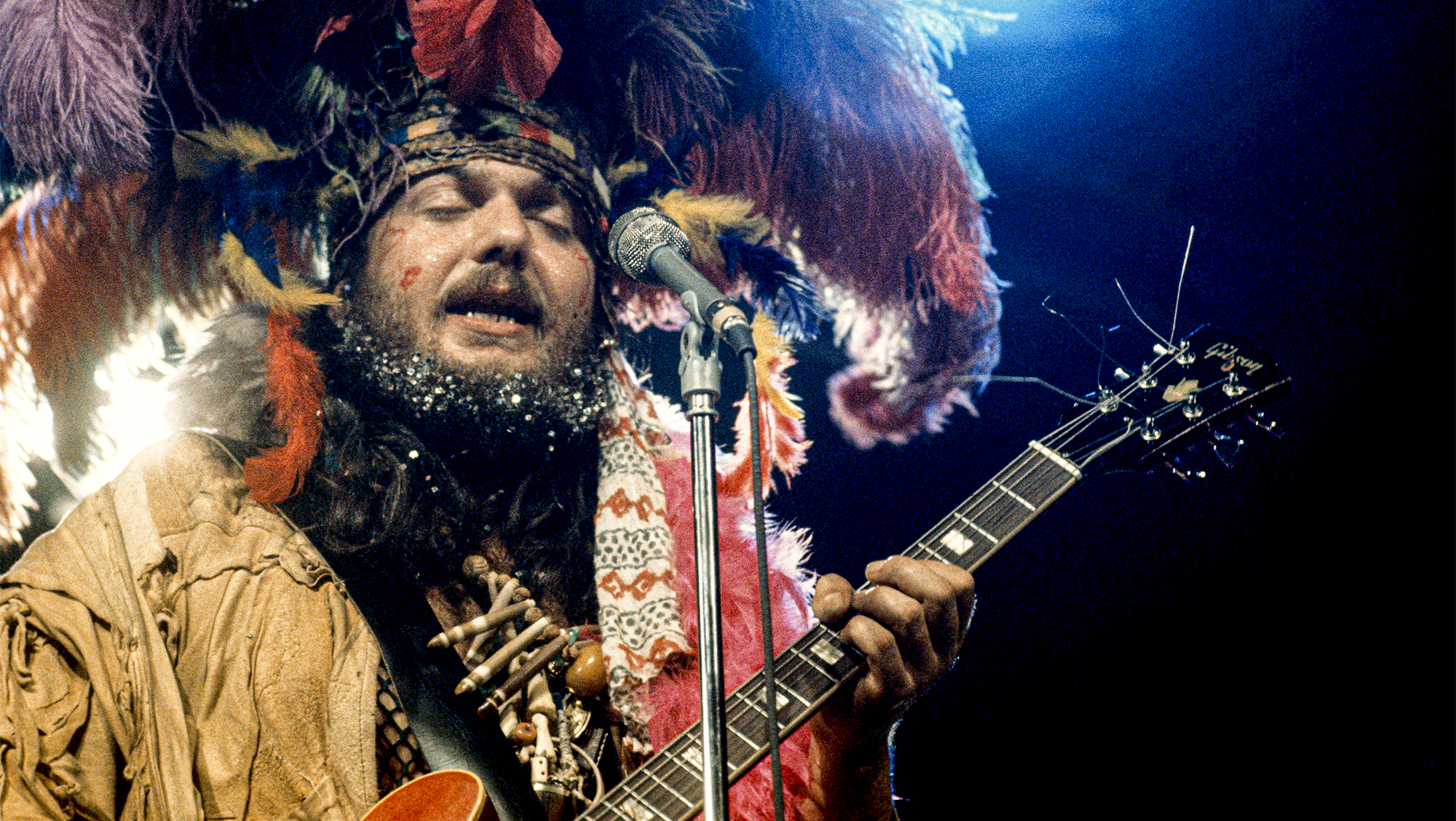“He was always reaching for something he couldn’t find.” Ritchie Blackmore on the thing that made Jeff Beck special — but kept him from realizing his own talent
In a new interview, Blackmore recalls the guitarist and his habit of putting himself down, something we find evident in his interviews through the years

All the latest guitar news, interviews, lessons, reviews, deals and more, direct to your inbox!
You are now subscribed
Your newsletter sign-up was successful
Ritchie Blackmore was very much on the scene in London in the years before he helped form Deep Purple. In addition to serving as a regular tour guitarist for Jerry Lee Lewis when the rock and roll pianist came to town, Blackmore did plenty of session work.
Which is how he came to meet Jeff Beck, where they were both hired to play in a session produced by Jimmy Page.
Blackmore rarely gives interviews, but in a new one on Rock of Nations With Dave Kinchen and Shane McEachern, the legendary electric guitar shredder pays tribute to Beck and recalls the pain he felt upon hearing about the virtuoso’s death on January 10, 2023 after he contracted bacterial meningitis
“Jeff was a great guitar player. That was a big blow, him going,” Blackmore says. “I mean, he was vegetarian and he didn't take drugs particularly or anything. I was very shocked to hear about him dying that way. That was terrible."
I’d say, 'How is your latest record, Jeff?' And he'd go, 'Oh, it's a lot of rubbish.' And he would always say that about anything he put out."
— Ritchie Blackmore
Having witnessed Beck up close in performance, Blackmore had excellent insights into his style and technique.
“He had a very special way of playing. It was so different from anybody,” he notes. “I always used to go and see him play, because I found him very refreshing.”
He was also modest. Blackmore recalls Beck constantly referring to his recordings as “rubbish.”
All the latest guitar news, interviews, lessons, reviews, deals and more, direct to your inbox!
“He would always put himself down,” Blackmore recalls. “I’d say, 'How is your latest record, Jeff?' And he'd go, 'Oh, it's a lot of rubbish.' And he would always say that about anything he put out. He was always reaching for something he couldn't find."
In a social media post made shortly after Beck’s death, Blackmore recalled meeting the guitarist and acknowledge his impact on him.
"First met Jeff Beck around 64-65 and it was a session where we were both playing guitars and Jimmy Page was producing. I couldn't believe how incredible he was, not only with his technique but his sound too. I became a fan of his ever since. He could reach up into the stars and make magic with his playing. His choice of notes were always absolutely perfect.
"This whole thing is a shock. We shall always remember Jeff as the best rock and roll player."
Beck launched his solo career after leaving the Yardbirds. His electric guitar playing in the group was both innovative and a key part of the group’s fame in the mid 1960s. But Yardbirds drummer Jim McCarty recently told Guitar Player that Beck was difficult and unpredictable, and once smashed a guitar in frustration.
Although he regarded his albums at times as missed opportunities to create something great, there’s no argument that he recorded numerous classics in his lifetime, from “Beck’s Bolero” to the Jeff Beck Group album Truth to his solo masterpiece Blow by Blow, his first bona fide success. Years after recording the latter, he confessed that he frequently confounded Blow by Blow producer George Martin with his cacophonous soloing.
“Some of my favorite solos got trashed because he thought they were hideous — not musical,” Beck said. “He’d say, ‘That’s really the most dreadful noise I’ve ever heard.’ And I’d say, ‘That’s what I want!’
“But I’d usually come round to his way of thinking.”
He’d say, ‘That’s really the most dreadful noise I’ve ever heard.’ And I’d say, ‘That’s what I want!’ But I’d usually come round to his way of thinking.”
– Jeff Beck on George Martin
Beck was similarly deferential when it came to “Beck’s Bolero.” Although he insisted he composed it, Jimmy Page ultimately took credit for it.
“No, I didn’t get a songwriting credit,” Beck conceded, “but you win some and lose some down the years.”
Even after achieving status as a living legend, Beck continued to be modest about his talents, noting that he chose working on his vintage car collection to practicing. His 1989 tour with Stevie Ray Vaughan proved an opportunity for Guitar Player to sit down with both guitarists. Jeff, as always, came off as humble, preferring to reflect glory on Vaughan, whom he said reminded him of his old friend Jimi Hendrix.
“I felt very amateurish alongside him, because he lived and breathed it. You’re very similar to Jimi in that way,” Beck told Vaughan. “I’m just a part-time employee.
“I’m not in love with the guitar as much as you are or Jimi is — was. I just pick it up and play it sometimes.”
Christopher Scapelliti is editor-in-chief of GuitarPlayer.com and the former editor of Guitar Player, the world’s longest-running guitar magazine, founded in 1967. In his extensive career, he has authored in-depth interviews with such guitarists as Pete Townshend, Slash, Billy Corgan, Jack White, Elvis Costello and Todd Rundgren, and audio professionals including Beatles engineers Geoff Emerick and Ken Scott. He is the co-author of Guitar Aficionado: The Collections: The Most Famous, Rare, and Valuable Guitars in the World, a founding editor of Guitar Aficionado magazine, and a former editor with Guitar World, Guitar for the Practicing Musician and Maximum Guitar. Apart from guitars, he maintains a collection of more than 30 vintage analog synthesizers.
